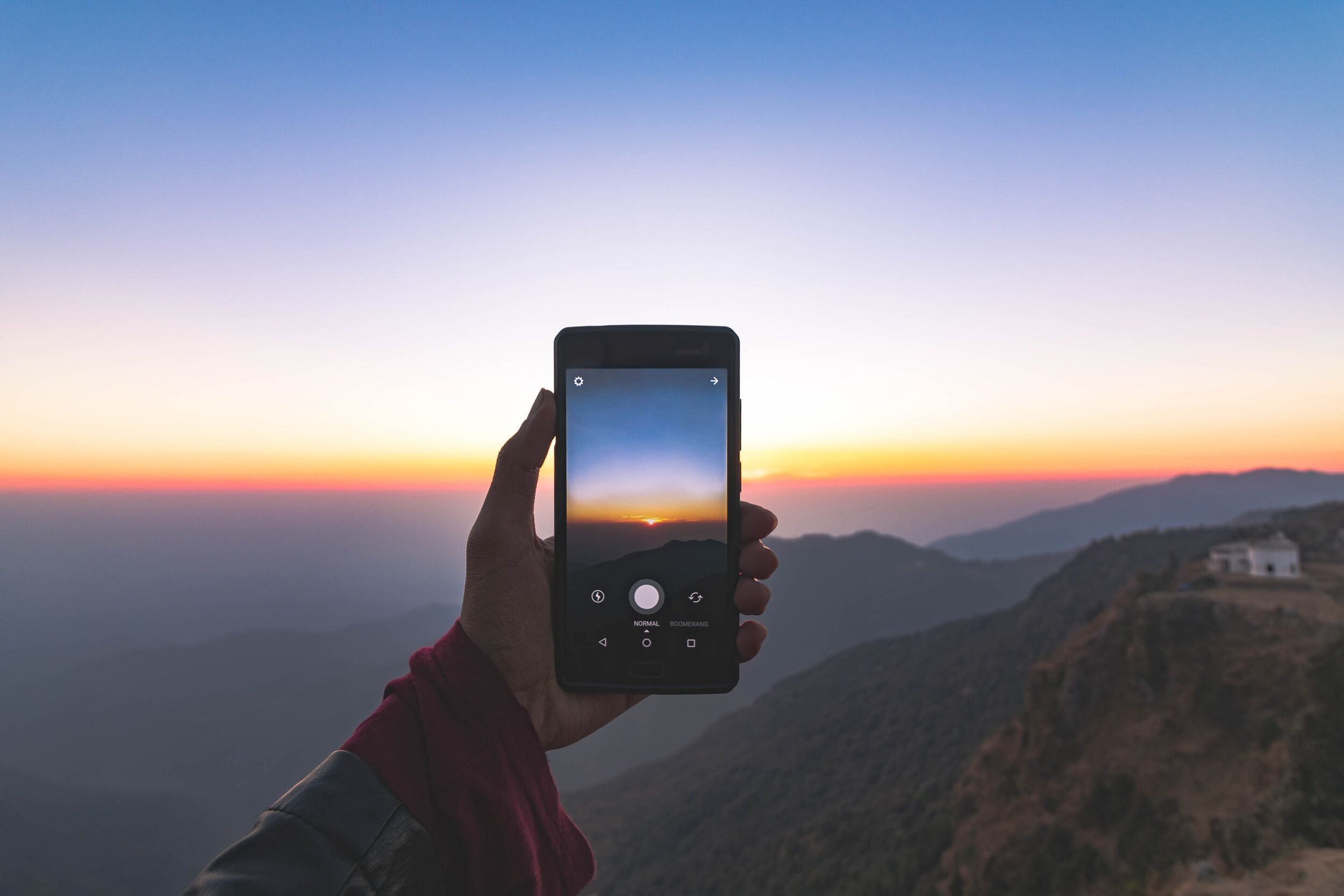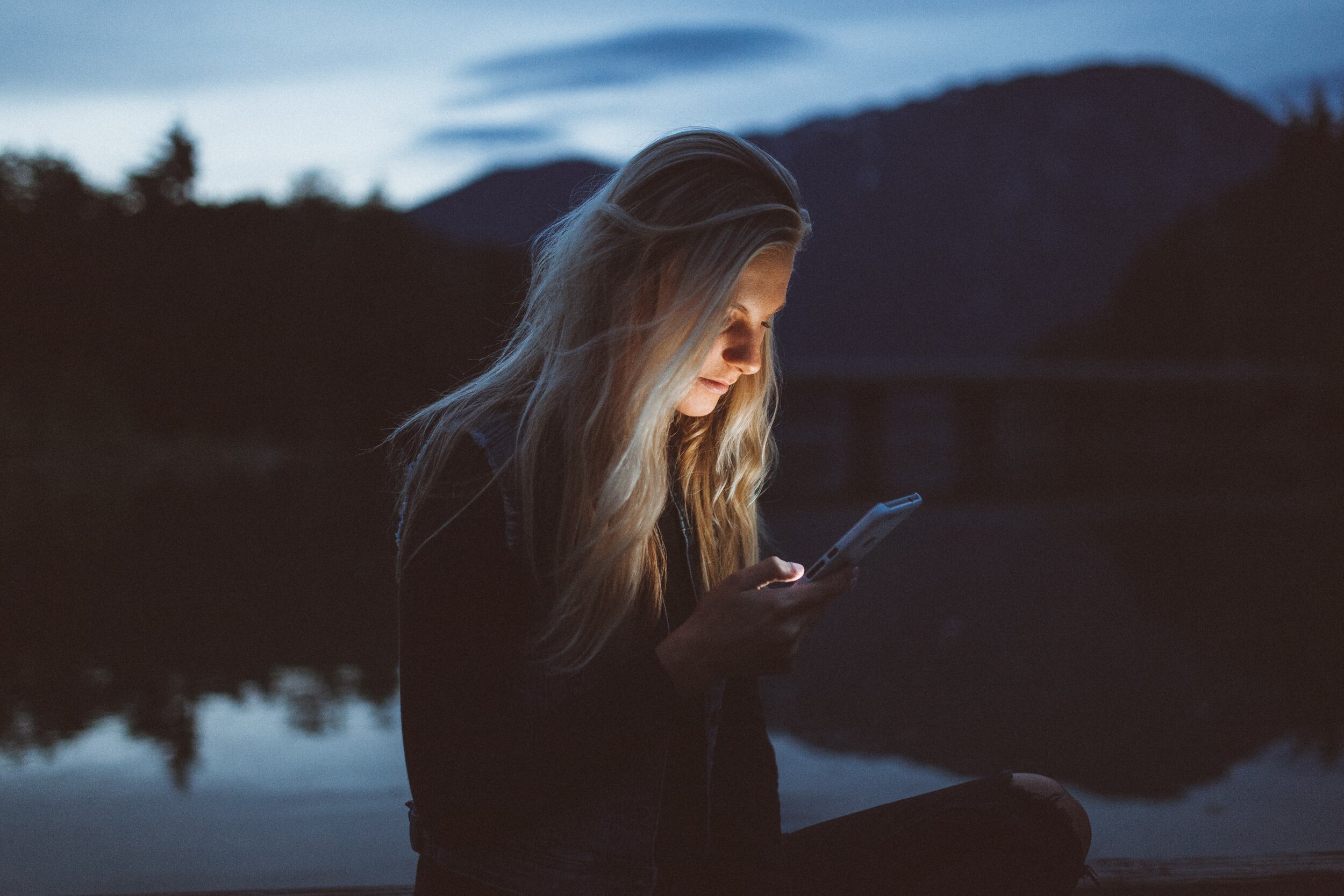The effect of blue light on sleep
The digital age makes things so easy. It’s hard to get bored, when you’ve got the whole world at your fingertips. But many of us are using our devices more and more often, including in the night time hours before bed. I even have patients telling me if they wake in the middle of the night, they reach for their phone and scroll for a few hours! (If you do that, please stop).
Melatonin for sleep
Melatonin is the hormone we need for sleep. When the eyes detect darkness (ie night time), the pineal gland releases melatonin. It takes approximately 4 hours of darkness for the brain to release it’s peak melatonin. In the day time, sunlight stimulates the pineal gland to replenish melatonin stores. Sunlight has some blue light in it, and our bodies know that blue light equals day time. The day/night cycle is part of the circadian rhythm and helps our nervous system trigger sleep.
Blue light and sleep
Exposure to blue light blocks melatonin release by telling the eyes that it is day time.
Low levels of melatonin causes an increase in insulin secretion, which alters blood sugar levels, triggering blood sugar instability.
Whether you have low melatonin, or unstable blood sugar, both of these are common causes of maintenance insomnia.
Maintenance insomnia is when you may fall asleep ok, but you just cannot stay asleep.
Blue light reduces sleep quality
Blue light is found in sunshine during the day. The blue light itself is NOT the issue. The issue is we are exposed to a higher ratio of blue light when using our devices, and we are exposing our nervous systems to blue light at times in the day when there shouldn’t be much at all.
Here’s the flow of effects as a physiological response to blue light (and how it impacts sleep and more):
Blue light tells the body it’s day time
Daytime stops the production and release of melatonin
Low melatonin disrupts sleep - usually with waking during the night
Disrupted sleep causes reduction in recovery from the day’s activities
Disrupted sleep increases the production of cortisol from the adrenals
Low levels of melatonin plus high cortisol levels leads to blood sugar instability, and if chronic, can lead to insulin resistance, leptin resistance, changes in neurotransmitter function (such as depression and anxiety), and carbohydrate cravings (due to blood sugar instability)
See how quickly too much blue light at the wrong time of day can impact your health?
How to reduce blue light exposure
Blue light blocking glasses and lighting are great - but make sure you choose quality versions as the cheap ones often do not do much at all (see below for my recommendations).
You can also opt to stop using technology (including tv), and reduce the artificial light in the house, from 8pm onwards. This gives your body time to adapt to the darkness and release adequate melatonin.
I use the F.lux download on my computer to remove any blue light. I’m quite sensitive so I reduce my blue light all the time, however you can set it to your time zone and have your screen change colour with the time of day.
Be sure to spend some time looking at the sunrise and sunset so your brain notices the red light in the sky, as this helps balance your circadian rhythm.
Have you managed to reduce your blue light exposure, and have you noticed a difference?
Get 10% off Blue Light Blocking Products with the code: DRCARRIE here.
Get 15% off Blue Light Blocking Products with the code: CARRIE15 here.
I use products from both these companies and can highly recommend them.
PS. This post contains affiliate links. When you purchase from these links, there is no additional cost to you but I receive a small commission that honours the time I spend researching amazing products. Thank you for your support.





